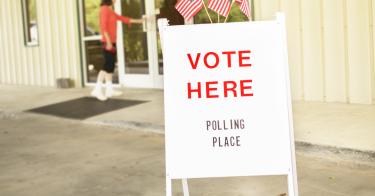Politicians and pundits are cheering the end of the Presidential Advisory Commission on Election Integrity. After spending months working aggressively to undermine its credibility and obstruct its work at every turn, they are claiming victory.
But make no mistake, their win is a loss for everyday Americans who now head into an election year deprived of a chance to know, once and for all, the scale and scope of voter fraud in America.
Answering that question was the core mission of this bipartisan commission.
Unfortunately, like so many things in politics today, what should have been a non-partisan matter was quickly made into a hyper-partisan cause.
Activists and elected officials — predominantly left-leaning ones — have leveled outlandish and even highly personal attacks against the commission and some of its members, accusing it of “voter suppression.” Quite the charge, considering that investigating incidents of voter suppression was part of the commission’s mandate.
When the commission requested basic voter records from the states, many feigned outrage and refused to comply. Never mind that those records are, by law, publicly available and routinely requested and purchased by political parties and other non-governmental entities.
Liberal advocacy organizations and even one of the commission’s own members, Maine Secretary of State Matt Dunlap, a Democrat, filed a bevy of lawsuits against it, bogging down the panel’s staff and grinding its operations to a halt. All this, just to stop a bipartisan advisory group from even studying the issue of election integrity. It begs the question, what are they afraid an investigation might uncover?
Could it be that, after years of insisting election fraud is non-existent, they fear a comprehensive analysis may reveal the opposite to be true? After all, the evidence is mounting against them.
The Heritage Foundation maintains and routinely updates an online election fraud database. It documents more than 1,100 proven instances of election fraud from virtually every state.
Nearly 90 percent of these cases resulted in criminal convictions against individuals; the remainder are supported by judicial or official findings of fraud.
The Heritage database is not comprehensive, but it demonstrates the types of fraud that can take place, including vote-buying operations, in-person fraud, duplicate voting, and voting by ineligible felons and non-citizens. When this fraud occurs, the consequences may be significant.
In some cases, elections had to be thrown out and redone, while in others, corrupt politicians and political activists of all stripes successfully overrode the will of voters, sometimes for years, in pursuit of their own careers and agendas. Such outcomes do not require, as many activists and media outlets have baselessly asserted, millions of illegal ballots.
Narrow electoral victories are not uncommon. Control of the Virginia House of Delegates, for example, was recently decided by drawing lots after a race ended in a tie. In an age of tight races like this one, even one fraudulent ballot could have profound repercussions.
Unfortunately, activists do not appear to be swayed by any of this.
In a bit of bizarre logic, many of the same groups who successfully blocked the commission from gathering evidence and conducting an analysis now claim its failure to overcome their obstacles is proof that fraud does not exist.
It was not always so. It was Supreme Court Justice John Paul Stevens — certainly no conservative — who, in 2008, authored the opinion that affirmed Indiana’s voter identification law.
Stevens cited “flagrant examples” of electoral fraud throughout American history. Certainly today there are many liberals who share his common-sense attitude.
After all, whether we call ourselves conservative or liberal, we are all Americans, and the right to participate in a free and fair election is the cornerstone of our liberty. Protecting the sanctity of the ballot box and ensuring that lawful votes are not diluted by fraud and theft should be an issue that rises above partisan games.
This piece originally appeared in The Mercury



